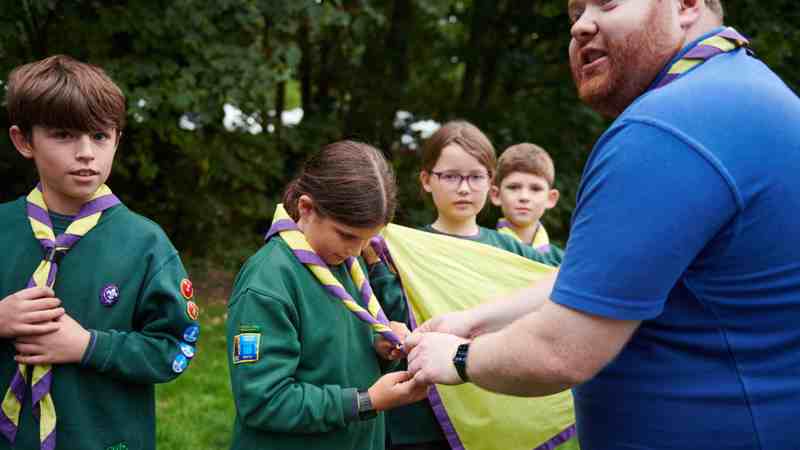The Appointments Advisory Committee
Discover what will replace the Appointments Advisory Committee
This information should support what is being shared in local briefings and meetings with your local Transformation Leads and leadership teams. Work with your Transformation Leads to plan how and when you will make these changes locally.
How the appointments process will change
We want to thank all our volunteers who have been on Appointments Advisory Committees (AACs) and supported thousands of volunteers joining Scouts. However, we know we need to adapt how we welcome volunteers to continue growing Scouts and giving more young people skills for life in the future.
Under our new approach, one of the key changes is to have a more personal welcome conversation. It will involve the relevant Lead Volunteer, Team Leader or their delegate, as well as a Welcome Conversation Volunteer – an active volunteer from another team with a role close to the one being recruited for. They cannot be from the same Group, or in the case of Explorers need to be from outside the 14-24 Team.
When volunteers join Scouts, they'll go through 6 steps of the joining journey (criminal record check, internal check, welcome conversation, references, declaration, and core learning). For Trustees there is an additional step (Trustee eligibility check). Most of these steps will be handled through scouts.org.uk, while the personal engagement will change from a panel to a conversation. Scouts.org.uk will automate most of the appointment-related administration tasks, such as references.
Other functions, currently within the responsibility of the AAC, such as managing adverse references and appeals, will in future be carried out by the Volunteer Safeguarding Lead or Lead Volunteer.
But remember - this change isn't happening yet, and until that point, there's still a need for AACs to carry out their work.
What this means for current AAC Members, Appointments Chairs and Appointments Secretaries
There’ll be lots of opportunities to use your abilities within our new structure. Look at Finding the right team.
You may want to talk to your Lead Volunteer about opportunities to do something new, or if you’re interested to continue using the skills you demonstrate as an AAC member, you might consider the following:
- Becoming a Welcome Conversation Volunteer - if you also hold another active role.
- Becoming a Volunteering Development Team Member – look at the team description for information on how this role supports volunteers in their District or County.
- Becoming a Volunteer Safeguarding Lead – if you have the skills to manage safeguarding incidents and adverse criminal record checks/references please talk to your Lead Volunteers about this accreditation option.
What you can do now
Now’s the perfect time to talk with your Lead Volunteer about what teams, tasks or roles would be right for you.
Scouts relies on committed and passionate volunteers, like you, to make things happen. So, even though the changes to the ways we welcome new volunteers aren’t happening just yet, it’s worth considering what you, as an AAC member, would like to do when they occur so that you can plan ahead and see how to fit your skills and interests into the new way of volunteering together in your Group, District or County.
If welcoming new volunteers into Scouts is something you enjoy, don’t worry, it’ll still be part of what we do. It may not look the same or be done through an appointments panel, but it’ll continue to be integral to growing our teams. So, if you’re on an AAC and you’re interested in a similar (or entirely new) task, we’d love for you to stay with us on this journey.

Check out our tool to help find the right team for you.

Discover what the changes will mean for Training Teams.